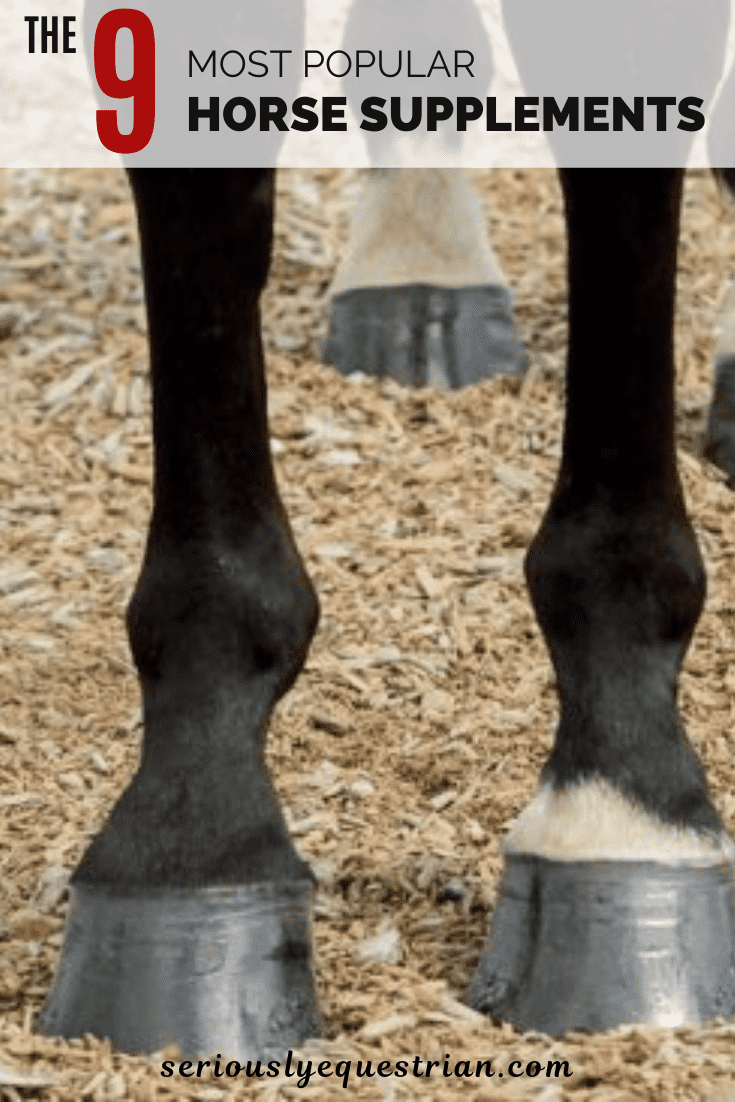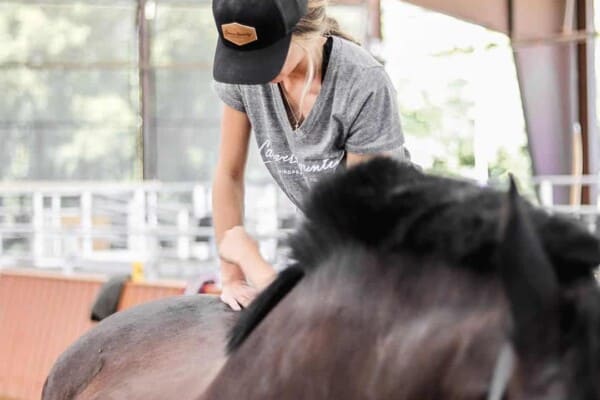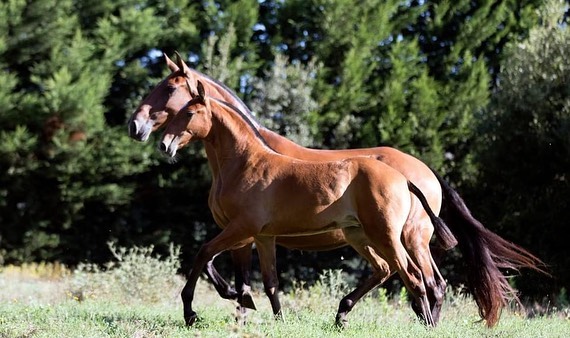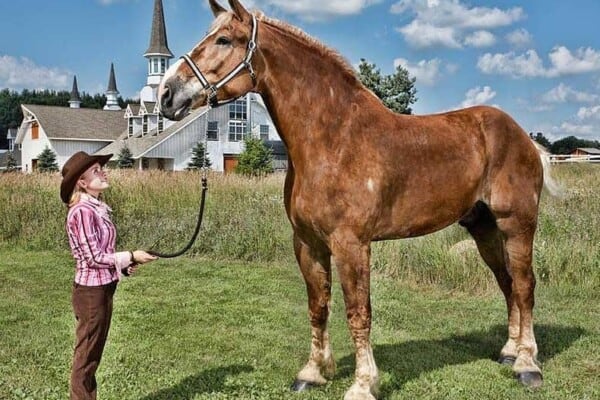Horse owners want to do the best for the health of their horses. To help owners fill this need, the use of horse supplements has become hugely popular. But knowing what one is the best or choosing between brands is overwhelming. To help you narrow down your choices here are nine of the most popular types of horse supplements. If you are in any doubt about whether you horse may be sick it is important to consult a vet before deciding to put them on a course of supplements.
1. Joint Supplements
Joint supplements for horses are extremely popular. For years owners have been trying to prevent or reduce the effect of osteoarthritis, the most common cause of lameness in horses. It is not yet possible to cure osteoarthritis. And research supporting the effectiveness of joint supplements is lacking. However, recent research has found that joint supplements can sometimes help manage joint issues.
The market is flooded with a choice of joint supplements, all claiming to solve your horse’s issues. However, not all supplements are as good as they claim to be, so you will need to choose wisely. The most important joint supplement ingredients are Glucosamine, Chondroitin, Hyaluronic Acid, and Methylsulfonylmethane (MSM).
Firstly, you need to choose a comprehensive joint supplement that contains several important ingredients. Secondly, choose one that contains the right amount of each ingredient to give it the best chance of having a positive effect. Thirdly, the active ingredients need to be of high quality.
2. Vitamin supplement
Like people, horses require a variety of vitamins and minerals for a healthy body. Depending on where you live and what feed your horse gets, he may need a vitamin supplement. Most grains are fortified with the correct amount of vitamins and minerals that a horse needs. If your horse is only on a small amount of grain or on a diet of just hay or grass, then he may need an additional supplement. Additional vitamins for mares in late gestation or nursing, young, growing horses, or horses in hard work are often required.
It is important to know what vitamins and minerals your horse is already getting. Certain ones are only needed in small amounts and can lead to toxicity if over supplemented. Where you live also affects what vitamins and minerals could be lacking. Find out if your area is short on a mineral, such as copper.
Often Vets may recommend a vitamin supplement to help protect your horse against a particular illness. In general Vitamin supplements are relatively cheap but can add up to be a significant expense when taken regularly over a long period of time. If this is an issue for you then try shopping around to ensure you get the best value.
3. Hoof supplement
Hoof supplements contain several different ingredients that aim to help improve hoof quality.
The most common and important of these ingredients is biotin. Improving hoof quality is a slow process and coincides with new hoof growth. It is necessary to continue a hoof supplement for several months to get the best results. Horse hoof supplements typically contain biotin, lysine, methionine, fat, fiber, calcium, phosphorus, copper, zinc and some protein, These nutrients all work to help stengten hoof walls and can significantly reduce the risk of cracked hooves
Horses who work everyday in extreme weather conditions are particularly at risk of developing issues with their hooves. In a harsh environment even the smallest cracks in the hoof can quickly become an issue which leads to the horse becoming lame. Combining a good hoof supplement with solid routine that includes checking and picking out your horses hooves sis often sufficient to ensure the horse stays fit.
4. Gastric Horse Supplements
The horse’s digestive tract is long, complicated, and sensitive. Due to the way we keep modern horses, gastric issues are, unfortunately, common. As a result, gastric supplements are one of the most common and numerous products available.
Gastric products often feature different ingredients and, finding the right one for your horse can be a process of trial and error. There are two types of gastric supplements. Those containing pre and probiotics are aimed at keeping the digestive system balance, thus reducing the risk of ulcers, colic, and other issues. And those specifically aimed at preventing or treating ulcers.
Some studies have found that pre and probiotics are helpful, but other ingredients used in ulcer supplements have not been extensively researched. It is important to note that if your horse has suspected ulcers get the vet to perform a scope. If your horse has ulcers, a supplement will not cure them, but it can be a good long-term therapeutic addition.
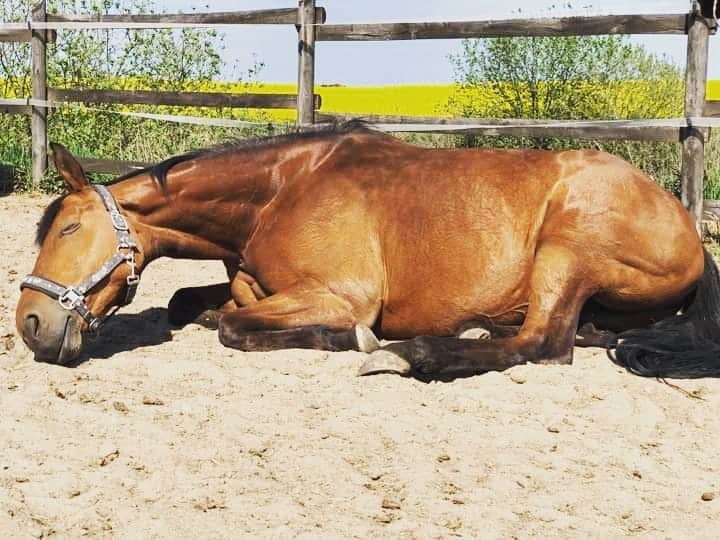
5. Coat
Who doesn’t want a horse with a glistening coat? A shiny coat isn’t just about looks but an indicator of a healthy horse. Horse supplements aimed at improving the quality and health of their coat are extremely popular and easy to find. The main ingredient to look for in a coat supplement is omega-3. These supplements come mainly in oil form, but not all oils are created equally.
For optimal effects, you need a supplement with a high amount of omega-3 and a low amount of omega-6. Besides being beneficial for coat quality, omega-3 also has anti-inflammatory properties. High amounts of omega-6 can have negative effects. The only supplements that contain good omega-3 to omega-6 profiles are linseed, oil or powder, and fish oil. Most supplements to improve a horses coat promise results in approximately 10 days. The fatty acids in the these supplements also tend to improve joint health which in turn can permit greater flexibility in the horse.
6. Breeding
Mares and stallions used for breeding often require additional nutrients. These can be provided by adding a breeding supplement to their diet. These nutrients are essential to maximizing fertility, fetus development, and milk quality in lactating mares. Omega-3 is particularly important for both mares and stallions. For mares, a breeding supplement is beneficial in the last trimester of pregnancy when the foal goes through its fastest growth phase. These supplements can be a little more difficult to find and you may need to contact a specialist supplier to get the one you need.
7. Performance
Performance supplements are aimed at sports horses that are in hard training or competing regularly. Products can vary greatly, depending on what goals you have. Some examples of performance supplements include muscle builders, specifically formulated vitamins and minerals, energy boosters, and lactic acid conversion aids.
8. Calming
In recent years calming supplements have become increasingly popular. There is a wide range of products to choose from with varying ingredients. They commonly contain one or more of the following: thiamine, valerian, L-tryptophan, magnesium, and chamomile.
The goal of these supplements is to help a horse relax and concentrate better on his work. The effects, if they work, are usually mild and don’t sedate the horse. Calming supplements should be used with caution in competition horses, as some ingredients are banned.
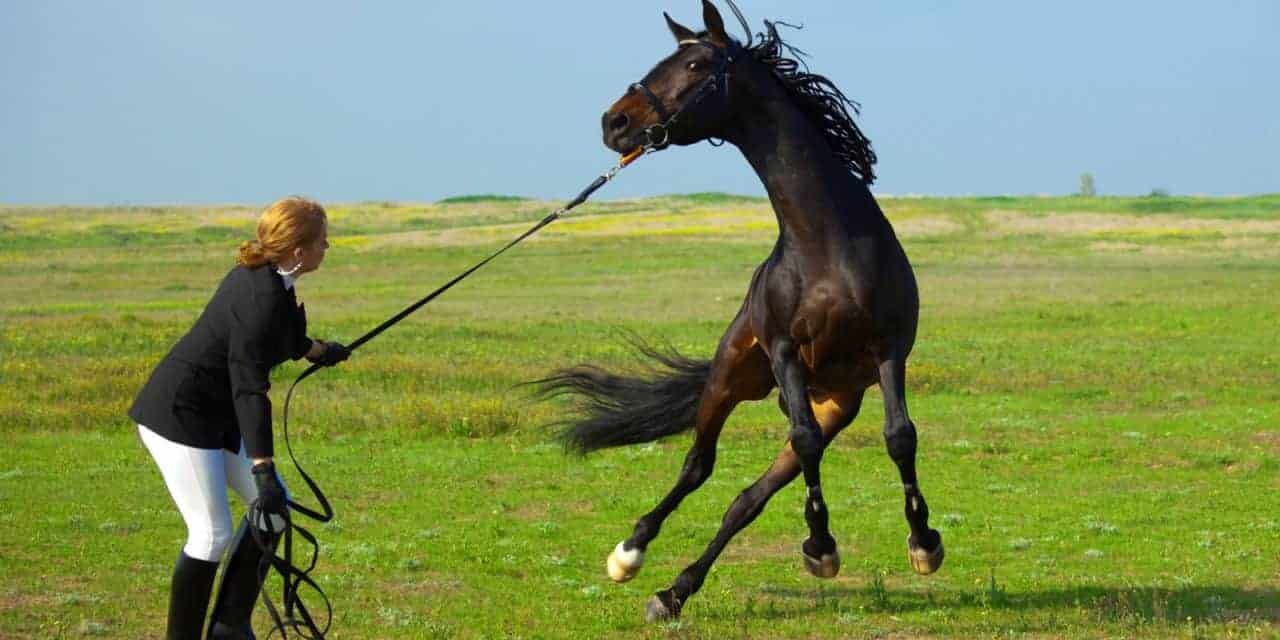
9. Pain management
Once upon a time, pain management options for horses were only available from the vet. However, several products are now available for long term use, without the worries associated with medicines. These supplements usually contain herbs known for helping with pain reduction. While they may not be as strong as medicines, such as bute, they can help with long term pain management.
Pain management supplements often include ingredients such as devil’s claw, yucca extract, and vitamin B-12.
With so many supplements available, choosing the right one can be a minefield. Before spending money on sometimes very expensive supplements, ask yourself if your horse really needs it. Finally, do some research on what ingredients actually help, the amounts needed for it to work, and the ingredient quality. Most of the pain supplements for Horses tend to be aimed at treating joint pain and arthritis. If you are worried that your horse may be sore then you should consult with the vet before adding a new supplement to their diet.


